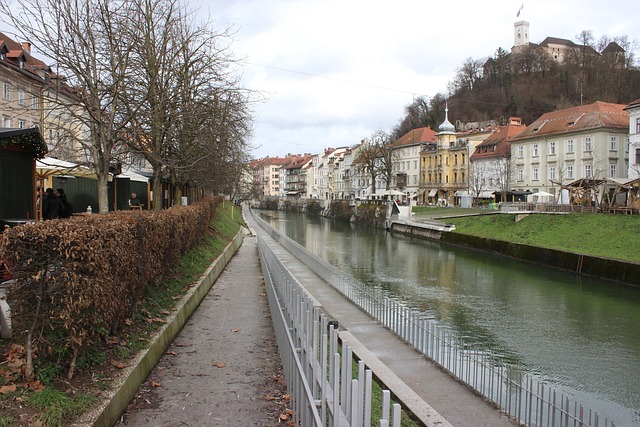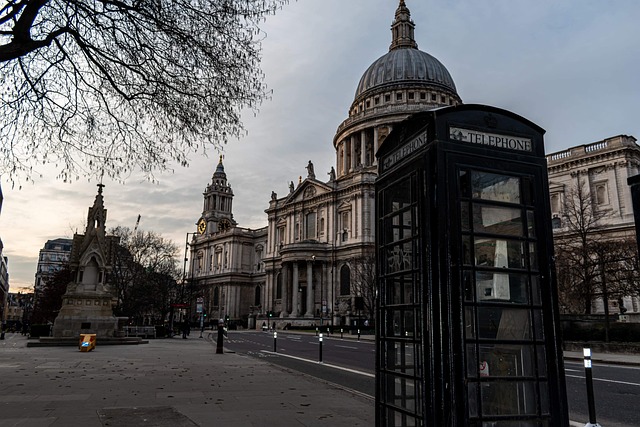Karachi, Pakistan's economic center, grapples with frequent power outages due to aging infrastructure, urbanization, and high energy demand, disrupting daily life and critical healthcare services. The National Health Service (NHS) Karachi has responded by implementing advanced backup electricity systems, ensuring uninterrupted medical care despite power instability. Modern solutions like solar panels, wind turbines, and battery storage are replacing traditional diesel generators, enhancing efficiency, sustainability, and reliability in NHS facilities. This innovation prioritizes patient safety, comfort, and continuity of care, positioning Karachi as a leader in resilient healthcare infrastructure within Pakistan.
Karachi, Pakistan’s bustling metropolis, faces chronic electricity challenges, impacting critical services like those provided by its National Health Service (NHS) facilities. Unreliable power poses a significant risk to patient care and healthcare delivery. This article delves into the city’s power struggles, exploring the essential role of backup power systems in maintaining NHS operations. We present innovative solutions, successful case studies, and future prospects for enhancing Karachi’s healthcare infrastructure resilience and sustainability.
- Understanding Karachi's Power Challenges: A City in Need of Reliable Electricity
- The Role of Backup Power Systems: Ensuring Continuous NHS Services
- Exploring Innovative Solutions: Modern Backup Electricity Options for Healthcare
- Case Studies: Successful Implementation of Electric Backup Systems in Karachi's NHS Facilities
- Future Prospects: Enhancing Resilience and Sustainability in Karachi's Healthcare Infrastructure
Understanding Karachi's Power Challenges: A City in Need of Reliable Electricity

Karachi, Pakistan’s economic powerhouse and a bustling metropolis, has long grappled with intermittent and unreliable electricity supply. The city’s power challenges are multifaceted, stemming from a range of factors including aging infrastructure, rapid urbanization, and increasing energy demand. These issues culminate in frequent power outages, disrupting daily life, business operations, and critical healthcare services.
The impact is particularly severe in the healthcare sector, where consistent access to electricity is paramount for patient care and vital medical equipment. The National Health Service (NHS) Karachi, responsible for providing essential healthcare services to millions, faces the daunting task of ensuring uninterrupted power supply to its facilities. This necessitates exploring innovative solutions, such as backup electricity systems, to mitigate power interruptions and guarantee the continuity of critical services in the face of Karachi’s ever-present power challenges.
The Role of Backup Power Systems: Ensuring Continuous NHS Services

In the bustling metropolis of Karachi, where life moves at a rapid pace, the National Health Service (NHS) plays a vital role in maintaining the health and well-being of the community. However, unexpected power outages can disrupt critical healthcare services. This is where backup power systems step in as game changers, ensuring continuous care and treatment for all patients. These systems are crucial in safeguarding the integrity of NHS operations in Karachi.
By providing an alternative energy source during power cuts, backup generators enable hospitals and clinics to maintain essential functions, from life support machinery to record-keeping systems. This proactive approach ensures that healthcare services remain uninterrupted, especially during emergencies or peak hours when demand is high. In a city like Karachi, where power instability is not uncommon, having robust backup solutions in place is a testament to the NHS’s commitment to delivering quality care, regardless of circumstances.
Exploring Innovative Solutions: Modern Backup Electricity Options for Healthcare

In the bustling metropolis of Karachi, innovation in healthcare infrastructure is more crucial than ever. Exploring modern backup electricity options for hospitals and clinics isn’t just an enhancement; it’s a necessity to ensure uninterrupted patient care. Traditional diesel generators, while effective, are being replaced by advanced technologies that offer greater efficiency, sustainability, and reliability.
Solar panels, wind turbines, and battery storage systems are emerging as game-changers in the healthcare sector. These innovative solutions not only reduce carbon footprint but also provide a stable power source during frequent power outages that plague Karachi. By adopting these modern backup electricity options, NHS Karsaz is leading the way in creating a resilient healthcare network capable of withstanding the challenges posed by an ever-changing urban landscape.
Case Studies: Successful Implementation of Electric Backup Systems in Karachi's NHS Facilities

In Karachi, several National Health Service (NHS) facilities have successfully integrated electric backup systems, leading to improved service continuity and patient care. These case studies highlight the transformative power of reliable electricity backup solutions in critical healthcare settings. For instance, a prominent NHS hospital in downtown Karachi implemented a state-of-the-art backup generator system, enabling uninterrupted power supply during frequent city-wide power outages. This move significantly reduced emergency room delays and improved overall operational efficiency.
The successful adoption of electric backup systems in Karachi’s NHS facilities is a testament to the city’s growing commitment to enhancing healthcare infrastructure. By prioritizing resilience against power disruptions, these hospitals are better equipped to handle emergencies, ensuring patient safety and comfort. Such initiatives reflect a broader trend across Pakistan, where healthcare providers are increasingly recognizing the importance of robust electricity backup solutions for sustained service delivery.
Future Prospects: Enhancing Resilience and Sustainability in Karachi's Healthcare Infrastructure

In the rapidly evolving landscape of healthcare, the integration of robust backup electricity systems is a game-changer for cities like Karachi. As the urban center continues to grow and demand on its infrastructure increases, ensuring resilience against power outages becomes paramount. Future prospects for Karachi’s healthcare sector lie in enhancing sustainability and redundancy through innovative energy solutions.
By adopting advanced backup power technologies, such as efficient generators and solar panels, hospitals and medical facilities can maintain uninterrupted critical care services. This is especially vital during peak hours or natural disasters when the city’s main grid might face strain. Such proactive measures will not only safeguard patient welfare but also position Karachi as a leader in resilient healthcare infrastructure, setting an example for other urban centers across Pakistan.
Karachi, as a bustling metropolis, faces unique power challenges, but these obstacles can be overcome with innovative backup electricity solutions. By exploring modern options, such as efficient and sustainable energy systems, the city’s NHS facilities can ensure continuous and reliable services. The case studies presented highlight successful implementations that have enhanced resilience and improved healthcare infrastructure in Karachi. Moving forward, adopting advanced backup power technologies is crucial to sustaining and developing Karachi’s healthcare sector, ensuring a brighter and more resilient future for its residents.

Leave a Reply